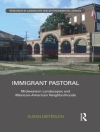In ‘The Poetry of Architecture, ‘ John Ruskin offers a profound exploration of the aesthetic and moral dimensions of architecture. Comprising a collection of essays and critiques, Ruskin employs a lyrical prose style that intertwines his admiration for the Gothic architectural tradition with philosophical reflections on beauty and truth. His keen observations reveal how architecture serves as a reflection of a society’s values, capturing the interplay between form and function in a rapidly industrializing world. The book stands as a crucial commentary during the Victorian era, affirming the emotive power of structures amidst the mechanical progress of the 19th century. John Ruskin, a leading art critic and social thinker, was notably influenced by his early exposure to nature and art. His simultaneous roles as an architect, painter, and passionate advocate for the preservation of the past infused his work with a unique perspective. These experiences cultivated his belief in the intrinsic connection between natural beauty and artistic creation, prompting a desire to articulate architecture’s deeper significance in society. Recommended for scholars and enthusiasts of architecture, art history, and Victorian culture, ‘The Poetry of Architecture’ invites readers to rediscover the emotional resonance of built environments. Ruskin’s eloquent prose and profound insights will undoubtedly encourage a more thoughtful appreciation of architecture’s role in shaping human experience.
Yazar hakkında
John Ruskin (1819-1900) was an influential writer, art critic, draughtsman, and social thinker of the Victorian era. His extensive work encompasses a diverse range of subjects including aesthetics, social welfare, nature, and the intricacies of craftsmanship. Ruskin’s literary style is marked by its eloquence, expressiveness, and persuasive force, which he employed to advocate for the societal and artistic reform. ‘The Poetry of Architecture’ is one of Ruskin’s earlier works, where he expounded on the connection between architecture and the natural environment and its importance in reflecting a nation’s culture and values. Ruskin’s passion for gothic architecture and his views on the moral and spiritual significance of architectural design were formative in shaping the Victorian taste and culture. His influence extended beyond the arts to affect social and labor conditions, education, and conservation practices. As a polymath, Ruskin’s writings left a legacy that had a profound impact on diverse figures from Proust to Frank Lloyd Wright, and he is still revered for his monumental contributions to art criticism and social theory.












